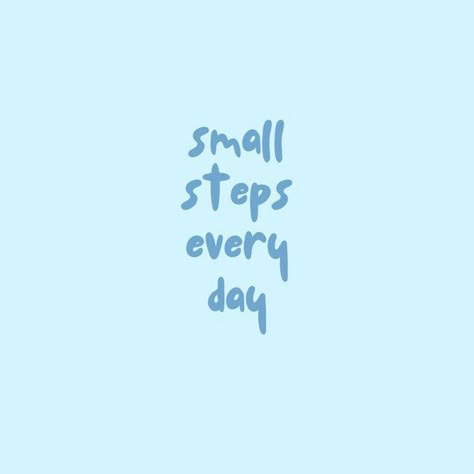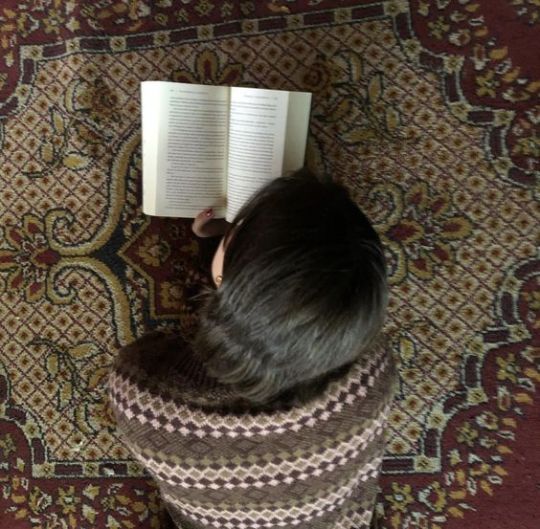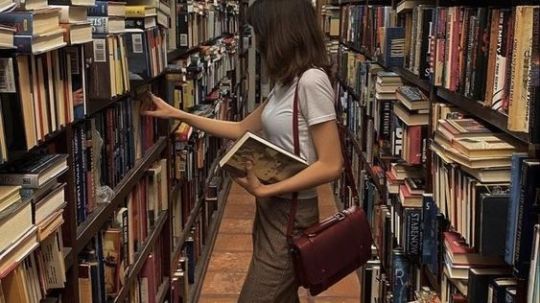#study tips and tricks
Explore tagged Tumblr posts
Text
Why CBSE Schools Are the Best Choice for Your Child’s Future
A child's future is greatly influenced by the school they attend, and every parent wants the best education possible for their child.Saraswati Vidyalaya, formerly a part of Maharashtra State Board School, is now a proposed CBSE school with the changing times and needs of the hour. Many parents choose the Central Board of Secondary Education (CBSE) over the other educational boards that are offered in India. Why are CBSE schools the greatest choice for your child's education, though? Let's examine the main causes. If you're looking for quality education in the Thane Majiwada area, consider Saraswati Vidyalaya - CBSE school near Thane Majiwada.
● Nationally Recognized and Standardized Curriculum
CBSE is a national-level board recognized by the Government of India. Its curriculum is uniform across the country, ensuring consistency in education, which is especially beneficial for students who relocate frequently due to their parents’ jobs. For families in the Thane Majiwada area seeking this consistency, Saraswati Vidyalaya - CBSE school near Thane Majiwada, offers a reliable educational option. One major benefit of the CBSE curriculum is its consistency, especially in a country as diverse and dynamic as India. Students enrolled in CBSE schools nationwide, regardless of where they live, follow a uniform curriculum, participate in standardized testing procedures, and are assessed using a common set of academic standards. Because of this consistency, a student moving from one state's CBSE school to another will be able to adjust to their new academic setting without experiencing major differences in their coursework or learning objectives.
● Focus on Conceptual Learning
Instead of emphasizing rote memorization, CBSE emphasizes conceptual understanding through a scientific and student-friendly approach. The curriculum aims to improve students' analytical and problem-solving abilities, which will increase learning effectiveness and engagement.
● Strong Foundation for Competitive Exams
One of the biggest advantages of CBSE schools is their alignment with major national competitive exams like:
● JEE (Joint Entrance Examination) for engineering aspirants ● NEET (National Eligibility and Entrance Test) for medical students ● UPSC and NDA exams for government job aspirants
The syllabus structure of CBSE is in sync with these exams, making preparation more seamless for students.
● Balanced Curriculum with Holistic Development
CBSE schools distinguish themselves by adopting a holistic educational philosophy that extends beyond the traditional confines of academic learning. They recognize that a child's development encompasses more than just intellectual growth, placing equal importance on extracurricular activities, sports, and the acquisition of essential life skills. This comprehensive approach aims to cultivate well-rounded individuals who are not only academically proficient but also possess the social, emotional, and practical skills necessary to thrive in an increasingly complex world.These activities, ranging from performing arts like music and drama to visual arts like painting and sculpture, encourage creativity, self-expression, and teamwork. Participation in such activities also fosters a sense of belonging, builds confidence, and helps students discover hidden passions.Sports play a crucial role in the CBSE curriculum, promoting physical fitness, discipline, and sportsmanship.This well-rounded development prepares them to face the complexities of the real world with confidence, resilience, and adaptability, ultimately contributing to their personal and professional success. Saraswati Vidyalaya: CBSE schools near Thane Majiwada exemplify this holistic approach, providing a well-rounded education for children in the area.
● Emphasis on Digital and Modern Learning
Instead of emphasizing rote memorization, CBSE emphasizes conceptual understanding through a scientific and student-friendly approach. The curriculum aims to improve students' analytical and problem-solving abilities, which will increase learning effectiveness and engagement.
One of the most crucial choices you will make for your child's future is which school to send them to. CBSE schools provide the perfect setting for academic success and general development because of their well-organized curriculum, widespread recognition, student-friendly style, and emphasis on conceptual learning. The CBSE is without a doubt the greatest option if you wish to give your child a well-rounded, future-ready, and internationally recognized education. Enrolling your child in a CBSE school ensures a solid foundation for their future success in addition to investing in their education! For families seeking a top-tier CBSE education in the Thane Majiwada area,
Saraswati Vidyalaya - CBSE schools near Thane Majiwada is an excellent choice. Visit Now : https://www.svptsaraswati.com/CBSE-School-Thane/
#CBSE schools near Thane Majiwada#Top CBSE schools in Thane#Best CBSE school in Thane#CBSE School in Thane city#Schools in Thane Ghodbunder Road#State Board School In Thane#Junior Colleges Thane#Study Tips And Tricks#Schools in Thane#Best School in Thane
0 notes
Text
#Top CBSE schools in Thane#Best CBSE school in Thane#CBSE School in Thane city#Schools in Thane Ghodbunder Road#State Board School In Thane#Junior Colleges Thane#Study Tips And Tricks#Schools in Thane#Best School in Thane
0 notes
Text
#Study Tips and Tricks#How to Remember Long Answers Quickly#studies#study#learning#spirituality#life lessons
0 notes
Text

5 Alternative Study Methods for UPSC Exams
If you are looking for other ways to improve your preparation for the UPSC exam. K3 IAS gives some tips for 5 alternative study methods for UPSC preparation. study tips and tricks upsc study tips IAS exam study tips
1 note
·
View note
Text
HELLO EVERYONE
WE HAVE AN ANNOUNCEMENT TO MAKE
#how to study tips#that study tips#student life#success#are studying tips#artwork#nature#YOU CAN DO IT#never give up#motivation#study motivation#study tips to become a topper#study tips and tricks#studyblr
0 notes
Text
Click this link for all study-related information.
0 notes
Text
100 Hobbies To Try
Update: I wrote this at like 1 AM, so I was kind of half-asleep lol. A few people brought up that there were a bunch of duplicates in the list, sorry about that! I redid the whole list and ordered them alphabetically to avoid any repeating words. Hope you find the new list much more helpful!
Hobbies are a great way to practice self-care, and to have as a stress reliever. As uni students, we often find ourselves stressed out about our academic responsibilities, projects deadlines, and even financial concerns. We need some way to let out those stresses, and hobbies are one way to do it. You don't have to be good at them, you just have to enjoy doing them!
Here's a list:
Acrylic pouring
Antiquing
Archery
Astrology
Astronomy
Baking
Beekeeping
Bird watching
Bookbinding
Calligraphy
Canoeing
Candle making
Cartography
Chess
Checkers
Collecting coins
Collecting crystals
Collecting funko-pops
Cooking
Crochet
Crossword puzzles
Cycling
Dancing
Diving
DIY electronics
DIY home improvement
Drawing
Embroidery
Fencing
Filming
Fishing
Frisbee golf
Gardening
Genealogy
Geocaching
Glassblowing
Guitar
Homebrewing
Hiking
Horseback riding
Hot air ballooning
Ice skating
Inline skating
Jigsaw puzzles
Juggling
Kayaking
Kite flying
Kite surfing
Knitting
Lego building
Letterboxing
Magic tricks
Martial arts
Meditation
Metalworking
Model airplanes
Model building
Model rockets
Model trains
Mountain biking
Origami
Paper folding
Painting
Paragliding
Parkour
Piano
Photography
Podcasting
Pottery
Programming
Puzzle solving
Quilting
Rappelling
Reading
Rock climbing
Rollerblading
Running
Sailing
Sculpting
Sculpture carving
Scrapbooking
Scuba diving
Singing
Skiing
Soap carving
Soap making
Stand-up comedy
Stand-up paddleboarding
Stained glass crafting
Stargazing
Surfing
Traveling
Urban exploration
Urban farming
Virtual reality gaming
Web design
Wine making
Wine tasting
Writing
Yoga
#studyblr#study tips#study advice#study hacks#study tricks#university#school tips#student#student life#study motivation#hobbies#selflove#self care#self love#self improvement#self healing#mental health#emotional health#coping#coping mechanism#school advice#high school#school#students#college#uni student#university student#collegelife#college life#exams
785 notes
·
View notes
Note
HIIII. i literally love your blog to death. it's so cute. and it's so informative.
Do you have any tips for making friends? i struggle soooo much with making friends! thank you mindy!
hi angel! 🌸 thank you for your sweet message about my blog! making friends can be super challenging, especially when you're focused on big dreams like med school and business like me. (trust me, i totally get it). let me share my detailed guide on making meaningful connections !
a guide to making friends (for ambitious sweethearts) ♡




understanding the basics of friendship: friendship is like a dance between two souls. it requires patience, understanding, and genuine interest in others. as someone who loves psychology, i've noticed that the strongest friendships are built on:
mutual understanding
shared values
consistent communication
emotional safety
reciprocal support
where to find friends (places i've had success):
academic settings
honors/ap classes (found my study buddy in ap bio!)
study groups (perfect for combining socializing and academics)
library study sessions
academic clubs (pre-med society changed my life)
business club meetings
extracurricular activities
volunteer work at local hospitals, clinics, animal shelters
business competitions
leadership workshops
student government
entrepreneurship clubs
psychology-backed friendship tips: (combining my psych knowledge with real experience)
first impressions
maintain soft eye contact
practice open body language
speak clearly but softly
show genuine interest
remember names (psychology trick: repeat it 3 times mentally)
conversation skills
ask open-ended questions
practice active listening
share relevant personal experiences
validate others' feelings
use "yes, and" technique to build on topics
maintaining friendships
schedule regular study dates (if you're a student)
create shared goals
celebrate each other's achievements
offer emotional support
respect boundaries
balancing friendships with ambition: as someone pursuing both medicine and business, i understand time management is crucial. here's how i maintain friendships while staying focused:
study together
share academic resources
create accountability partnerships
schedule friendship time like meetings
combine social time with productive activities
common friendship challenges and solutions:
feeling too busy solution: integrate friends into your routine (study sessions, lunch breaks)
social anxiety solution: start with one-on-one interactions in comfortable settings
fear of rejection solution: remember that everyone feels this way sometimes
maintaining boundaries solution: be clear about your time constraints and priorities
different interests solution: find common ground in shared goals and ambitions
red flags to watch for: (important)
friends who don't respect your academic goals, career goals, life goals etc..
people who make you feel bad about your ambitions
toxic competition
inconsistent support
emotional drainage
green flags to look for: (important)
mutual encouragement
respect for boundaries
genuine interest in your success
emotional availability
consistent communication
note:
quality over quantity always
true friends support your dreams
it's okay to be selective
friendship takes time to develop
your academic goals matter too
personal note: i've found my closest friends through shared interests in medicine and business. we study together, support each other's goals, and understand when we need to focus on academics. these friendships are extra special because they align with our future paths.
i'm naturally an introvert and i tend to isolate myself a lot, but the friends i have are super understanding and support me, and i couldn't ask for better friends <3
sending you the sweetest vibes and hoping you find your perfect friend group! remember, the right friends will celebrate your ambitions, not dim your shine. ✨
love always, mindy
p.s. feel free to message me anytime for more specific advice! we're all in this together. 🤍

#girl blogger#dream girl#it girl energy#glowettee#pink#study tips#that girl#becoming that girl#self improvement#girlblogger#studyblr#study motivation#studyspo#study blog#student#university#studying#student life#lana del rey#lana del ray aesthetic#lana is god#friends#making friends#dream girl tips#tips#mental health tips#advice#life hacks#helpful#tips and tricks
73 notes
·
View notes
Text
Shoujo Specifics: Haruhi Fujioka


Where’s my host club
tips start here:
Studying
Haruhi’s main hobby is studying. I mean, it’s what got her into Ouran High! Even if you’re not aiming to get into a luxury school, it is always a good idea to study hard so you can accomplish your dreams.
Join clubs!
Ok, technically Haruhi isn’t in a club by choice, but she does enjoy herself at the host club. Not only is it a great way to make friends, but also enrich your life! So pick a club and have a good time!!
Watch how much you spend
Being a ‘commoner’, Haruhi tries not to spend much money on things she doesn’t need. Although it’s ok to buy yourself something every once in a while, try not to excessively buy things you don’t actually need. When buying something, question how much you’ll get out the item.
Believe in yourself
Haruhi pretty much always believes in herself. She has no doubt when it comes to whether things will be ok or not! One easy way I’ve been able to believe in myself is affirmations. Things like “the universe works in my favor” and whatnot
Eye contact
Haruhi canonically has very good eye contact! Now this is one I really struggle with, but with time and practice, it’ll gradually become more comfortable and natural.
take care of yourself and your home
In her spare time, Haruhi does all of the housework. To take after this try learning some healthy food recipes, set up a cleaning routine, and helping out around the house if you don’t live alone.
(P.S. if you’d like to see me doing any other Shoujo girls, tell me which ones and I’ll see what I can do!)
#shoujo#becoming that girl#2000s#fashion#girly#glow up#girl blogger#shoujo romance#shoujo manga#anime#manga#haruhi fujioka#ohshc haruhi#ohshc#ouran host club#ouran highschool host club#self improvement tips#tips and tricks#guide#school life#student#student life#school#study motivation#study blog#studying#cleaning#deep cleaning#self development#self care
23 notes
·
View notes
Text
how to set goals and actually achieve them ✧⋆⭒˚。⋆
nonbasic tips from a girlie who’s learning to do just that!



1. goal-setting strategies
Start with a vision aka the big picture, but that sounds boring. Think about what you want to achieve. I know it’s hard, but you want to know exactly what you’re striving towards. Think about where you want to be in 6 months, 1 year, or maybe even 6 years.
Write down your goals. Now that you have a vision, write goals (or smaller steps) that cater to your larger vision.
Are your goals specific? Are they detailed enough for you to know exactly what you are doing when you’re working towards the goal? For example, “study more” is not a specific-enough goal, but “improving my physics grade from a B to an A” is a clearer goal. The more specific you are about exactly what each goal is, the easier it will be to achieve them.
Are they measurable? Is it clear how you will determine when you have met your goal, or even how you will track your progress? For example, if I say I want to study physics more, there’s no quantification for what “more” means. A more measurable goal might be “I will study physics every day for at least 30 minutes”
Do they align your vision? I really want to finish my CS50P coding class by the end of May, but it won’t align with my goal of improving my academic marks by a letter grade this semester. So, I disregard this goal for now, and I can come back to it once the school year ends. Same with many other goals. Make sure that they are actually relevant to your vision, not just seemingly relevant.
Are they time-bound? Similar to procrastination, your goals will fit in the time frame you give it. Because of this, it is always best to set goals with deadlines. One thing I’m doing this year is improving my timed essay writing for the AP exam. So, my time-bound goal would be “I will complete one essay per week and improve my writing speed before the AP English Language exam in three months.”
2. getting it done
Success really is just a numbers game. How much time you put into your goals is how much progress you’ll see in return. It’s really that simple! Some days you’ll see more progress, and other days you will see a bit less. But every bit of effort adds up, even when it doesn’t feel like it. (those days you see less progress are the reasons why there are those special days with a lot of progress)
Every second poured into your goal counts. It’s really true! No matter where you are, even a few minutes of consistent effort count more than inconsistent huge efforts. As for me towards my goal of improving my grades in certain classes and preparing for the AP exams in May, I found that studying anytime anywhere really helped lessen the burden of having to worry about studying and doing homework. I’ve even looked like a maniac doing homework on the floor of the band room in the times when I’m not playing.
Do everything towards your goal. If it doesn’t align with your goals/vision, don’t do them. It’s much easier said than done, but sometimes you just gotta check yourself when you find yourself working on something that’s not towards the goal you want to achieve.
Don’t think about it too hard. Action beats overthinking every time. Even if certain aspects of your plans change, or something doesn’t go as intended, just start, and the rest will fall into place.
you've got this!! sending all my best wishes <33
sincerely, q's playlist
#qs playlist#gaslight gatekeep girlblog#girlblogger#girly things#just a girlblog#girlblogging#live laugh girlblog#aesthetic#dream girl#girlblog aesthetic#study tips#studying#studyblr#study blog#student#student life#academic#tips and tricks#tips#goals#self improvement#self discipline#self development
29 notes
·
View notes
Text
Quick tip: as silly as It sounds, watching kids show in the language you're learning helps a lot ! :D I mean, if they're meant to teach kids to speak their very first language, why wouldn't it help older people learn a new one?
If you want to get fluent you have to view it as starting from zero, the same way everyone started from zero when they learnt their mother/first language as kids! Good luck!
#language learning#language study#english language#free studies#french language#french studyblr#italian studyblr#korean language#korean learning#Language learning tips#Learning tips#Language learning#french learning#Italian learning#spanish learning#english learning#Portuguese learning#languages self learning#Learning tricks#language tips
25 notes
·
View notes
Text
#Top CBSE schools in Thane#Best CBSE school in Thane#CBSE School in Thane city#Schools in Thane Ghodbunder Road#State Board School In Thane#Junior Colleges Thane#Study Tips And Tricks#Schools in Thane#Best School in Thane
0 notes
Text



Tips for good studying
I must admit that I am shocked at how helpful the post about Toxic romanticization of studying was for you, so I decided to expand it with a second part. Here I will talk a little about examples from my own experience with studying.
1. Take small steps
Even tiny, but keep moving forward. I know it's a very clichéd phrase, but it really works. Especially in the case of very complex theories or extensive material. Then it is worth starting by understanding the basics and expanding this knowledge based on the information that we can best learn first. This way of learning looks like creating increasingly wider circles around one dot (which was our basis).
My practical advice: when I learn very difficult things, I start by finding starting points and writing them down on a small piece of paper (e.g. names or dates). Then I try to combine it in any way possible. When I find connotations, I look for more information about them, which I transfer to a larger piece of paper. This creates charts of varying levels of connection and complexity.
2. Clearly divide time for studying, rest and fun
Of course, studying can be fun, but sometimes we need a moment to relax and do nothing. It's good to divide these moments, which will allow us to either focus completely on work or on rest. Combining learning, especially the kind that is a burden for us, with some form of relaxation makes both activities ineffective. And we still get tired of all this.
My mistake: the countless times I've worked on something and wasn't happy with the results that day. And the evening came, and instead of letting go and resting, I tried to combine "relaxation" with further work. It ended up that I didn't do anything productive, nor did I enjoy a glass of wine or a movie that I watched because she stubbornly tried to do something else.



3. Stimulants are always harmful
In this case, stimulants can be understood in many ways. It may be coffee, alcohol, nicotine or even illegal things. Culturally, we don't see anything wrong with another cup of coffee when we need to concentrate. Or another cigarette, or champagne when we need to relieve stress. However, it should be remembered that all these substances affect our perception and brain functioning to a greater or lesser extent. And isn't it great and healthy to know that we can achieve a lot without these boosters?
My weakness: as I mentioned earlier about a glass of wine, It's nice, but it doesn't help me study. However, I read undemanding books with a wine in bed for pure pleasure.
4. Take care of your neurons
First of all, you need to understand that our brain is responsible for studying. And the brain is an organ and our will is not always enough for its proper functioning. We need to take care of our neurons so that they continue to develop and expand their connections. How to do it? In addition to maintaining overall health, you also need to get enough sleep, have access to fresh air and sun, discover and experience new things and take care of your diet.
My tip: discovering something new every day seems to be an extremely difficult challenge, but it may just be tiny things done in a different way. Changing the place helps me gain a fresh perspective when studying. Sometimes I go to another room, sit by the open window, move everything to the floor or go outside.


If you have any examples of mistakes, good advice or similar problems with studying, you can share them below. There is nothing better than exchanging experiences and having a joint discussion that can bring new solutions to problems!
#studying tips#healthy studying#study inspo#study motivation#studyblr#dark academia#light academia#studyspo#study inspiration#study aesthetic#study blog#studying#productivitytips#studyblr community#tips and tricks#studying inspo
80 notes
·
View notes
Text
tips for stem majors in math and science courses (spoonie + neurodivergent friendly)
hi y’all! my nameis lila and i’m a 28 year old physics and anthropology major who’s about 2 years through college (in the US)! as we’re coming up on the start of the fall ‘23 college semester, i thought i might share some really solid hacks for fellow STEM students taking science and/or math courses that i’ve basically built my college academic career on. and! these study tips are spoonie and adhd friendly! as a matter of fact, a lot of these are tips/methods that specifically work for me as a neurodivergent spoonie (i have pretty severe adhd, as well as POTS and ME/CFS), but that i think non-disabled/non-spoonie and/or neurotypical students could also benefit from using! so with out any further ado, here are my 7 tried and true study hacks for college math and science classes…
1) discover your learning style and tailor your studying towards leveraging it.
you’ve probably heard of visual, audio, and kinesthetic learning styles, but did you now there’s actually way more learning styles than just those three? i’m personally a “social learner,” meaning i learn best through discussion and socialization with 1+ other people to interact with. this could look like teaching other classmates concepts and methods that we’ve learned or discussing ideas with classmates and/or professors until i fully understand the concepts at play and how they connect and can reflect them in performing analysis and application, etc. honestly, figuring out my learning style was hands down one of the most helpful things i’ve done in college. it has allowed me to choose professors who i will mesh better with in terms of how they teach, as well as to adapt materials and methods to my style of learning in order to master them quicker and more effectively.
2) rewrite your notes after lecture, for the love of god.
this tip actually comes from my high school IB Math HL teacher, who told me to do this when i originally left high school for college. even if you think you’ve mastered the basics of the topic covered during the lecture, rewriting those notes after lecture helps really hammer in the knowledge that you’ve already established and also helps to get the wheels turning on pieces of information you might have less of a grasp on. try tp set aside at least 30 - 40 minutes after class to just rewrite your notes and try to really digest the information.
3) body doubling is one of the most beneficial things ever to be invented even if you’re not adhd, and i WILL die on that hill, thank you very much.
“body doubling” or “having an accountabilibuddy” are interchangeable terms in the adhd community that mean you have one or more consistent study buddy/buddies who you do all the homework and/or studying with in person on a regular basis, even if you’re just working next to each other in total silence. this does a couple of things. first off, it forces homework/assignments/studying to become a concrete social obligation you need to regularly show up for, rather than a nebulous obligation based on an invisible deadline. second off, it gives you 1+ partners to work out your problems concerning course topics with. third off, it allows you to build a network of peers where you feel comfortable helping each other with course material (this is especially great because it’s likely you and your classmates have different strengths regarding course content). tbh, body doubling is the other method that i, personally, have found most useful in college and i highly recommend trying it, even if you don’t have adhd.
4) teach others/your classmates the analysis and application methods you’ve learned, even if those methods aren’t 100% solidified for you (trust me on this).
the goal of stem courses is never memorization, but rather being able to understand a topic well enough to analyze a similar situation and apply the what you’ve learned creatively. this is where teaching others comes in. in order to teach others a concept and its related analysis and application well, you have to have at least a fraction of a decent understanding of these things yourself, and, further, often time in teaching these things you also learn to grasp the concepts/aanalysis/applications even better than you did before with each new teaching session. basically: teaching others is a creative way of also teaching yourself. you get the benefits of repetition, of thinking about a concept/technique/analysis and application in a new way, and of getting to apply the concept/technique/analysis and applicatioin to a new scenario each time. plus, you’ll typically make friends quickly in the process! there’s really no downside to this tip imo ;-)
5) utilize your college’s tutoring center/program(s), even when you don’t think you need to.
usually colleges have either set up a general “tutoring center,” on campus where you can find tutors for all different kinds of topics and courses available during regular hours for walk-in sessions and/or appointments free of charge or departments will hold regular weekly (or twice weekly) free on-campus tutoring sessions for specific courses. regardless of which of these options your college has, i highly recommend attending at least one tutoring session/appointment (ideally with the same tutor if/when you eventually find one you click with) every single week, even when you don’t feel like you’re struggling with the topic(s) covered in that week’s lecture. this will help you review topics and techniques covered in lecture, deepen your understanding of them, and, if nothing else, it’s an excuse to get homework out of the way while having someone else there who can help you if/when you get stuck. attending at least one session weekly also helps you get into a habit and routine of keeping up with your assignments, so you’re not left scrambling at the last minute before they’re due.
6) if you have accommodations, request access to record lectures. if you do not have accommodations, ask your professor if you are allowed to record lectures. IF YOU RECORD LECTURES, DO NOT FORGET TO REVIEW THEM!
okay, so first up for my fellow spoonies and neurodivergent peeps: when you apply for/renew your accommodations, make sure that “recordinng lectures” is on your MOA (memorandum of accommodations), because so long as it is, your professors legally cannot deny you permission to record lectures without risk of themself and the college being sued for an ADA violation. also, make friends with a classmate and ask them to record lectures and send them to you if/when you are absent (let the professor know that you’ve asked this classmate to record and send you the lecture if you are absent)
now, if you aren’t disabled, a spoonie, and/or neurodivergent, you aren’t guaranteed permission to record lectures. however. ask the professor if you can have their permission to audio record lectures (be sure to also let them know that such a recording would be for personal use only and that you don’t plan on distributing the recordings). i’ve found that many professors don’t mind you having an audio recording.
even if you aren’t an audible learner it can be really useful to have these recordings to review at a later point. oftentimes reviewing lecture recordings can be useful if you glazed over and missed a section of the lecture and/or if you can’t remember what a professor taught during a section of a lecture.
7) last but not least, on a related note, if you have accommodations, also request access to your professor’s lecture notes. if you don’t have accommodations, check if your professor posts their lecture notes for students to use.
having your professor’s notes can be extremely useful for review purposes, but they can also help you understand where your professor is going with course content and what they want to stress as important.
#studyblr#study tips#study hacks#adhd studyblr#adhd study tips#adhd#spoonie#college studyblr#college study tips#college study hacks#disability#chronic illness#collegeblr#college#uni#uniblr#university#tips and tricks#text#mine
274 notes
·
View notes
Text
Check out
If you haven't already, check out the Cool Study Wizard blog!!
#student life#study tips and tricks#that study tips#study tips and hacks#what's study skills#are studying tips#to study tips#what are good study tips#how study skills for students#study tips to become a topper
0 notes
Text
How To Get Multiple Colors in a Text
warning this is might be long due to my over-explanation!!!
Some time ago I got a comment on my post asking how I got the color fading effect in my text and used non-default text colors, like the title above. I also got a few messages about this.
I swear wanted to respond sooner, but I completely forgot. When I finally got the time to reply, I noticed my response turned into an essay! So, I decided it would be easier to make a post instead, and if you're like me and are a visual learner don't worry I included images!
Also, I have ADHD and over-explain things. I realized that while drafting my reply, it came across as patronizing. So if I sound that way in this post, I assure you it's not my intention; I just tend to explain things in detail because I prefer having things explained to me like that with the smallest details addressed. I tried to make it super simple for those who are new to Tumblr.
Here is the website I used: https://patorjk.com/text-color-fader/
If you got how it works congrats, If not, and you're confused, feel free to read the steps I take when using it!

HOW TO GET THE CODE!

1.) The first step is to enter your text which is done here!

2.) Choose the number of colors you want your text to have. At least 2 colors are needed for your text to have a fade effect. For using just one color without fading, refer to 3.c.

3.a) Choose your colors from the presets which btw automatically change the number of colors used but you could simply change it.

3.b) If you would like to choose your own colors, ignore the presets and simply click on the color to edit the Hex code. Keep in mind that the order of the colors, as shown above, is the same order in which they will appear in the text when the code is generated.

3.c) To use a single color without any fade effect, set the color amount to 2, which is the minimum allowed. Then edit the two colors to have an identical hex code.

4.a) You can choose your Fade type using the below options. For this post, I will be using the horizontal fade type, as it's the one I prefer. I haven't explored the other options much, so feel free to experiment and choose whatever you like!

4.b) For the output code ALWAYS KEEP IT AS HTML when using it on Tumblr. Unless something changes with the website, HTML is the default, so you don't need to worry about making any changes.

5.a) Click the generate button at the bottom of the page to create the code.

5.b) This is how the results will appear with multiple colors and just one color. By default, the background color is set to black, but you can change it to white or another color to test how your text will look. This option can be found at the lower right side of the results, titled "View Against Background." (NOTE: The background color does not affect the code and is not included in the code itself.)


5.c) If you want to edit something, simply press the "create new fade" button at the bottom. Don’t worry; it won't reset anything; it will just take you back to the previous page!

6.) When you are okay with the results copy the code. To do this press the select all at the bottom right of the code. This will just highlight the code so you will need to either press ctrl c, ⌘ c, or whatever you do to copy text on your device!


NOW, HOW TO PUT THE CODE INTO TUMBLR!

7.a) Head over to Tumblr and create a post! Make sure you're editing using HTML by pressing the little setting button on the upper right side of your post.

7.b) Scroll down to the text editor. The default should be rich text. Press the dropdown and choose HTML.


7.c) Paste the code in the HTML editor. Then save it as a draft to make sure it looks good before posting.

8.) Here's how it should look. Be aware that the HTML editor does mess up your image placements a bit when editing, but that's an easy fix. You just edit the draft and drag the images back to where you wanted them, and it won't mess with the code.


POTENTIAL PROBLEM YOU MIGHT FACE

You might get a warning like this when using bulky paragraphs with color-fading text on Tumblr, as it wrongfully considers them to exceed the character limit. This warning doesn't appear for single-colored text. When I switched to a single color, the warning disappeared, allowing me to save my draft. When this warning appears, you will not be able to save your draft at all, which puts you at risk of losing all your work. What I usually do when I get this warning and am unable to save the draft is change the text editor, use HTML, and save the draft from there.
Please be aware of two minor issues with this hack: First, HTML can interfere with your images. If your images are stacked, that's fine; however, if they are side by side, HTML will change them to a stacked format. Second, the "read more" link will be deleted by HTML. While both issues can often be resolved using the rich text editor, you won't be able to fix them in this scenario because the rich text editor won't let you save the draft or post due to incorrectly seeing the character limit.
To work around this issue, I sometimes save the draft as HTML on my computer to bypass character limits. Then, I use the Tumblr app on my phone to adjust the image placement and re-add the “read more” link. This may not always work so just be aware of these potential issues!

That's it! If you have any questions, feel free to comment or message me, I'm kind of new at this too so bear with me!
PS, @angel-dustspo I’m so sorry for the late reply!!
#html css#html#code#chaotic academia#tips and tricks#for reference#text post#moodboard#studyblr#academia aesthetic#useful#study blog#writing#instructions#productivity#tumblr stuff#colorful#aesthetic#girlblogger#pinterest girl#student#studying#studyspo#student life
15 notes
·
View notes